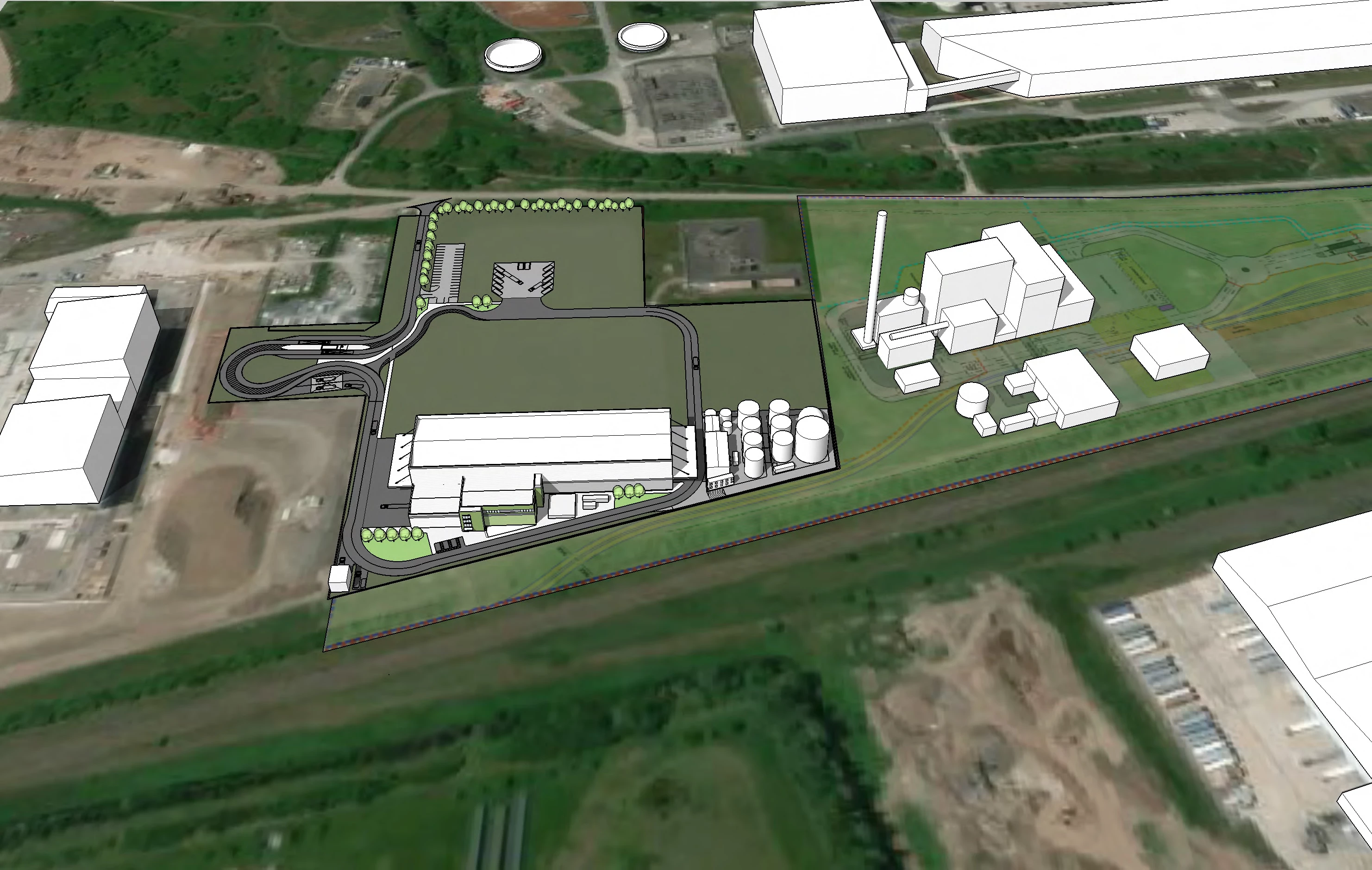
Partner Article
Planning secured for 'green' waste management plant
Plans have been approved to build a new waste management plant on land at Deeside Industrial Estate in the Flintshire Enterprise Zone.
National consultancy Pegasus Group secured the permission from Flintshire County Council on behalf of Logik Strategic Land who will deliver the biogas facility on the former Gaz De France power station.
Dave Green of Logik said the plant is expected to handle up to 182,000 tonnes of rubbish a year, producing up to two megawatts of green energy, while bringing huge investment to the region.
He said: “The plant will bring more than £50m of investment to the North Wales area, creating substantial employment throughout the construction period and its subsequent ongoing operation. It will also deliver arguably the most advanced and environmentally friendly landfill diversion to date through a process that diverts more than 85% of our black bin waste into recyclables and recoverables and thus supporting Wales in its zero to waste targets.
“The process captures an extra 6,000 tons per year of valuable recyclables that by any other process would be missed. These are recyclables that are put into black bin bags by mistake and they are hard to obtain normally.
“We are proud to have this advanced process showcased here in North Wales and for the first time ever outside of Israel, attracting a global audience.”
The technical process that will be used at the plant is known as ArrowBio, a unique technology that successfully treats municipal solid waste (MSW) using a hydromechanical separation and preparation process to recover recyclables.
It uses water and mechanical equipment to separate the organic fraction, produce high methane (CH4) content biogas for several green energy uses and recycle up to 70%-80% of the waste. By-products such as various plastics, cardboard, wood and metals are suitable for recycling, and some of them also for RDF (Refuse-Derived Fuel) treatment. At the end of the anaerobic process, the organic remains are used as soil improver for agriculture as well as for bio-drying systems.
Neil Culkin, a Regional Director based in Pegasus Group’s Liverpool office, added: “This proposal represents the first UK site utilising this concept, and we are pleased to be involved in such an innovative scheme.”
Pegasus Group has more than 270 skilled and experienced staff operating from 12 offices across 11 locations throughout the UK. Their services span the entire project process from planning through to design and delivery, specialising in planning, design, environment, economics and transport.
This was posted in Bdaily's Members' News section by Sam Taylor .
Enjoy the read? Get Bdaily delivered.
Sign up to receive our popular morning National email for free.








 A welcome step forward – but let’s keep pushing
A welcome step forward – but let’s keep pushing
 Industrial strategy 'can drive business forward'
Industrial strategy 'can drive business forward'
 Industrial strategy 'can be game-changer we need'
Industrial strategy 'can be game-changer we need'
 Driving skills forward with near £100,000 boost
Driving skills forward with near £100,000 boost
 What pension rule changes could mean for you
What pension rule changes could mean for you
 North East can't be an afterthought in AI future
North East can't be an afterthought in AI future
 Understanding the impact of the Procurement Act
Understanding the impact of the Procurement Act
 Is the UK losing ground in life sciences investment?
Is the UK losing ground in life sciences investment?
 Construction workforce growth can't be a quick fix
Construction workforce growth can't be a quick fix
 Why it is time to give care work a makeover
Why it is time to give care work a makeover
 B Corp is a commitment, not a one-time win
B Corp is a commitment, not a one-time win
 Government must get in gear on vehicle transition
Government must get in gear on vehicle transition